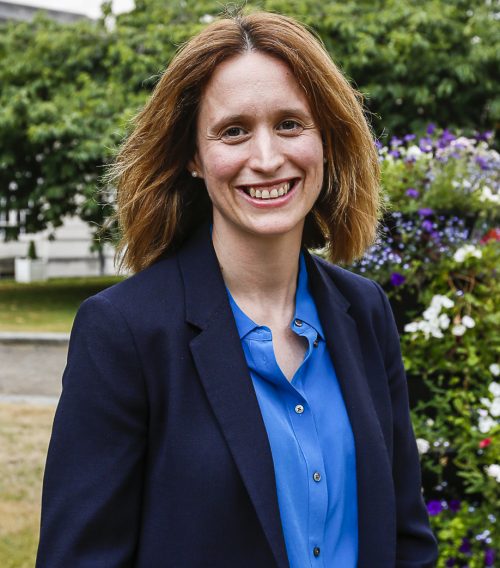Economic growth and success must be felt across all corners of the city, says new chief officer for economic development

The new chief officer for economic development at Leeds City Council has ambitions to grow the city’s GVA and also spread such economic success wider across the city region, in a role which will see her lead economic growth, visitor economy and economic policy for the council.
Eve Roodhouse been appointed to the newly created role after working at NHS Digital since 2003, latterly as director for digital implementation and the digital environment.
The appointment has been made following the departure of Tom Bridges, chief officer for economy and regeneration, who moved to Arup earlier this year. His role will be carried out by Roodhouse, alongside Angela Barnicle, who in April became the chief officer for asset management and regeneration.
Now into her fourth week in the role, Roodhouse, said it was about creating further GVA for the city – which, in Q1 this year saw a 2% rise – as well as focusing on its distribution. One of her focuses is to roll out and implement the council’s industrial strategy, which sets out how the council is planning economic growth in the future. “We want to make Leeds a place where we are making sure that people living in the most deprived areas are feeling the benefits of economic growth just as much as those living elsewhere,” she said.
“It’s no secret that there are 150,000 people living in deprived areas in Leeds and we need to work on economic growth to help improve lives. There is a definite link between health and wealth. Creating more jobs in the region allows more people to get jobs and that supports their well-being.”
Roodhouse, who is originally from Skipton and started her career as a consultant for Deloitte in London, added: “So far I have been getting to know businesses across the region, so I can understand what they are doing already. There is a huge amount of really positive things going on right across the city but it’s now about working on how we can harness that.”
Those sectors she names as critical to the city region’s economy are tech, financial services and health. “We are living through the fourth industrial revolution. There are significant opportunities for the region and the businesses here to embrace it. We have to make digital a big part of the economy by supporting existing businesses to be more digitally minded, including the SMEs who may need help to make sure they maximise their digital capabilities for efficiency and growth,” added Roodhouse. “There are so many people doing innovative things to bring forward great ideas,” she said.
The challenges ahead, in her view, include the skills gap. Roodhouse said: “There is a shortage of skilled young people coming out of the education system. We will be working with businesses in the city to make sure that they understand that there is support. We have to look at how we accelerate connecting employers with the right skills.
“And we can’t talk of challenges facing the region without talking about the ‘B’ word – Brexit. I am mindful of the uncertainty and it’s on my radar that we need to understand the signs and changes in the economy as a consequence of Brexit. Our challenge is making sure that we are fleet of foot.”
Roodhouse said that these challenges, along with facing the issues around deprivation, could be tackled by stakeholders contributing and engaging with the council and urged people to do so. She is, in the first couple of moths of her tenure, spending time getting to know key players in the marketplace. “We have a strong economy and that is what makes this place such a great place to live and work,” she added.
Roodhouse also supports the Channel 4 bid, which last week narrowed Leeds down as one of the three shortlisted cities which could become home to the broadcaster’s HQ. “Securing channel 4 would be transformational; not just for regional businesses but also for the opportunities it will bring for the creative industries. It will help to retain talent rather than see graduates move away for careers in the creative sector.”
She added that having a strong cultural offer, like the legacy being created in the wake of the Leeds 2023 bid, made the city “stand out” as a potential place for businesses to invest and also to attract and retain talent. “The visitor economy also sees investment not only for those visiting the city but also improves the lives of the people already here,” said Roodhouse.
“I feel incredibly proud to be representing Leeds; representing a place and people I really care about. I take great pride in what I do. What excites me the most about this role is the ability to change people’s lives for the better,” concluded Roodhouse.








